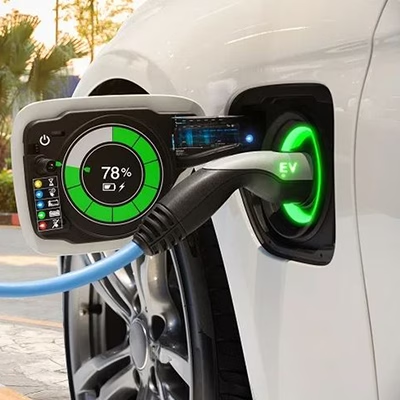Why Are Electric Cars Bad? Exploring the Top Concerns and Myths
Electric vehicles (EVs) are often celebrated as the future of transportation, promising reduced emissions and cutting-edge technology. However, critics frequently ask, “Why are electric cars bad?” This article will explore the top concerns and myths about electric cars, offering clarity and addressing misconceptions.
Environmental Concerns
1. Are Electric Cars Really “Green”?
One common criticism is that electric cars are not as environmentally friendly as advertised. While EVs produce zero tailpipe emissions, the environmental impact of manufacturing batteries and generating electricity can offset some benefits.
- Battery Production: EV batteries require mining rare earth minerals like lithium, cobalt, and nickel. The extraction process is energy-intensive and often harmful to local ecosystems.
- Electricity Sources: The environmental friendliness of EVs depends on how the electricity is generated. In regions reliant on coal or fossil fuels, EVs may not offer significant emission reductions compared to gasoline vehicles.
2. Battery Disposal and Recycling Challenges
The disposal of used batteries poses another environmental issue. Without proper recycling infrastructure, battery waste can contribute to pollution. However, advancements in recycling technologies aim to mitigate this concern.
Practical Limitations
1. Range Anxiety
Despite improvements, range anxiety remains a significant concern for potential EV owners. The limited driving range, typically between 200 to 400 miles per charge, may not suit everyone’s needs, especially for long-distance travelers.
2. Charging Infrastructure
Access to charging stations is another critical issue. While urban areas and developed countries have seen rapid growth in charging infrastructure, rural regions often lack sufficient facilities, making EV ownership less convenient.
3. Charging Time
Unlike refueling a gasoline car, which takes minutes, charging an EV can take several hours depending on the charger type. Fast chargers can reduce this time significantly but are not always accessible.
Financial Concerns
1. High Upfront Costs
EVs are generally more expensive than their gasoline counterparts due to costly battery production. While government incentives and lower operating costs help offset this, the initial price tag can be a deterrent.
2. Maintenance Costs
Although EVs have fewer moving parts and lower maintenance requirements, replacing a battery—the most expensive component—can be costly, especially for out-of-warranty vehicles.
Performance Myths
1. Do EVs Lack Power?
Contrary to popular belief, electric cars often outperform gasoline cars in acceleration due to instant torque. However, critics argue that EVs lack the “soul” or “feel” of traditional internal combustion engines, especially for car enthusiasts.
2. Weather Dependency
Extreme temperatures can significantly impact an EV’s range and battery performance. Cold weather reduces battery efficiency, while hot climates may require energy for cooling systems, decreasing overall range.
Societal and Economic Impacts
1. Job Losses in Traditional Auto Industries
The transition to electric vehicles threatens jobs in traditional automotive manufacturing and oil industries. Critics argue this shift could harm economies reliant on fossil fuels.
2. Ethical Concerns in Mining
The demand for rare earth minerals raises ethical concerns about mining practices, including child labor and unsafe working conditions in some regions.
Frequently Asked Questions
Are electric cars more expensive to own than gasoline cars?
While the upfront cost of an EV is higher, they typically have lower running and maintenance costs over time, making ownership potentially cheaper in the long run.
Can EV batteries be recycled?
Yes, EV batteries can be recycled, but the infrastructure for large-scale recycling is still developing. Companies are investing heavily in improving battery recycling technologies.
Do electric cars cause more pollution than gasoline cars?
The answer depends on various factors, such as electricity generation methods and battery production impacts. In most cases, EVs produce fewer lifetime emissions than gasoline cars.
How long do EV batteries last?
Most EV batteries are designed to last 8-15 years or more, with manufacturers typically offering warranties covering this period.
Are electric cars practical for long trips?
With advancements in range and charging infrastructure, EVs are becoming increasingly practical for long journeys. However, planning routes with charging stations is essential.
The question “Why are electric cars bad?” stems from valid concerns and misconceptions. While EVs face challenges such as battery production impacts, range limitations, and charging infrastructure, they remain a cleaner alternative to traditional gasoline vehicles in most cases. As technology advances and infrastructure improves, many of these issues are expected to diminish, making EVs a more viable option for a sustainable future.







